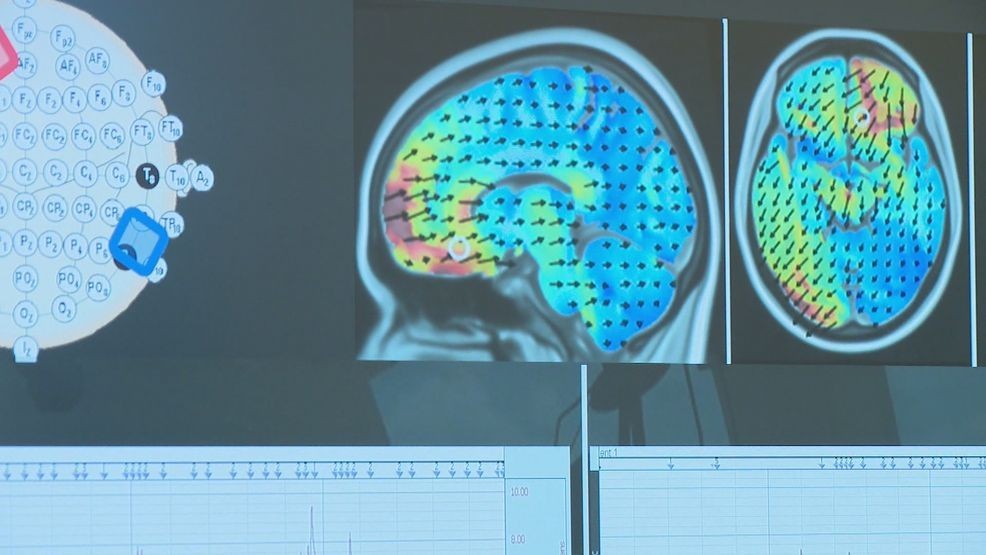“No other institution works on PTSD, like the VA is,” said Dr. Amin Zand Vakili, one of the many mental health researchers at the Providence VA. “We have a very good understanding of what diabetes is, what happens in somebody with diabetes.”
“For an illness like depression or PTSD we rely on patients subjective reporting of their symptoms,” added Vakili.
They don’t have objective testing.
“And so the goal of my program, my lab, is to develop those tools with the help of AI and technology,” he said.
In ongoing research, they’re looking at MRI brain scans–three different views–including one that shows how the brain is wired.
Then, utilizing AI, they help find patterns in those with PTSD and depression.
“This helps us, first of all, find an objective say way to diagnose PTSD and also helps us better understand what happens in the brain of somebody with PTSD,” said Vakili.
The next step in research?
“People have roughly 43 muscles in their faces,” he said.
The hope is to analyze video of these patients as they’re going through treatment.
“And we use that to see whether we could see signs of improvement…because sometimes people look better before they feel better,” said Vakili.
“There’s a lot of excitement with AI,” said VA Providence director, Lawrence Connell. “If AI can be beneficial to the treatment of veterans and the American public at large, I think we need to leverage that technology.”
“My research program works on developing technology-based tools to better understand mental illness, to better diagnose different mental illnesses and also to predict treatment outcomes in veterans who are dealing mostly with PTST and depression,” said Vakili.
They are currently enrolling veterans diagnosed with PTSD who are between the ages of 25 and 65 for the MRI study.
Those interested should call the research team at: 401-273-7100, ext. 16281.

